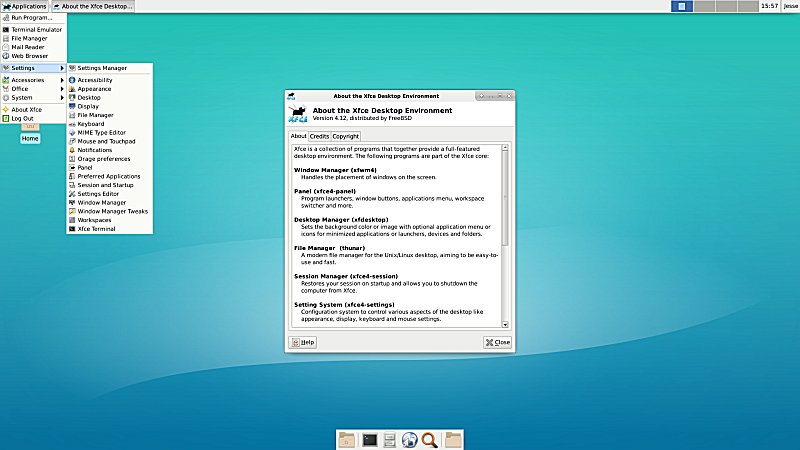FreeBSD has recently released versions 14.3, 13.4, and 12.4, showcasing its ongoing commitment to providing a powerful operating system for a variety of platforms, including servers, desktops, and embedded systems. Originating from the Berkeley Software Distribution (BSD), which was developed at the University of California, Berkeley, FreeBSD is maintained by a dedicated community that ensures its continuous improvement.
Renowned for its exceptional features, speed, and stability, FreeBSD stands out in the operating system landscape, offering advanced networking capabilities, high performance, robust security measures, and compatibility features that are often absent in other operating systems, including many leading commercial alternatives. This makes FreeBSD an ideal choice for both Internet and Intranet servers, as it can handle heavy network traffic efficiently, maintaining quick response times even with thousands of simultaneous user processes.
With over 33,000 ported libraries and applications, FreeBSD supports a wide range of software for desktop, server, appliance, and embedded environments, making it a versatile solution for different use cases. Users can conveniently install FreeBSD from various media, such as CD-ROM, DVD, or directly over the network through FTP or NFS. The availability of multiple builds tailored to diverse situations further enhances its accessibility, with users able to choose the version that best meets their needs.
In addition to its robust features, FreeBSD continues to evolve and adapt to the demands of modern computing, ensuring it remains a competitive choice for users looking for a reliable operating system. Whether for personal use, enterprise applications, or development purposes, FreeBSD’s ongoing updates and community support position it as a strong contender in the operating system realm.
As FreeBSD continues to grow, it may also inspire greater integration with emerging technologies, potentially exploring areas such as cloud computing, containerization, and advanced security protocols, further solidifying its relevance in the ever-changing tech landscape
Renowned for its exceptional features, speed, and stability, FreeBSD stands out in the operating system landscape, offering advanced networking capabilities, high performance, robust security measures, and compatibility features that are often absent in other operating systems, including many leading commercial alternatives. This makes FreeBSD an ideal choice for both Internet and Intranet servers, as it can handle heavy network traffic efficiently, maintaining quick response times even with thousands of simultaneous user processes.
With over 33,000 ported libraries and applications, FreeBSD supports a wide range of software for desktop, server, appliance, and embedded environments, making it a versatile solution for different use cases. Users can conveniently install FreeBSD from various media, such as CD-ROM, DVD, or directly over the network through FTP or NFS. The availability of multiple builds tailored to diverse situations further enhances its accessibility, with users able to choose the version that best meets their needs.
In addition to its robust features, FreeBSD continues to evolve and adapt to the demands of modern computing, ensuring it remains a competitive choice for users looking for a reliable operating system. Whether for personal use, enterprise applications, or development purposes, FreeBSD’s ongoing updates and community support position it as a strong contender in the operating system realm.
As FreeBSD continues to grow, it may also inspire greater integration with emerging technologies, potentially exploring areas such as cloud computing, containerization, and advanced security protocols, further solidifying its relevance in the ever-changing tech landscape
FreeBSD 14.3 / 13.4 / 12.4 released
FreeBSD is an operating system used to power modern servers, desktops, and embedded platforms.


